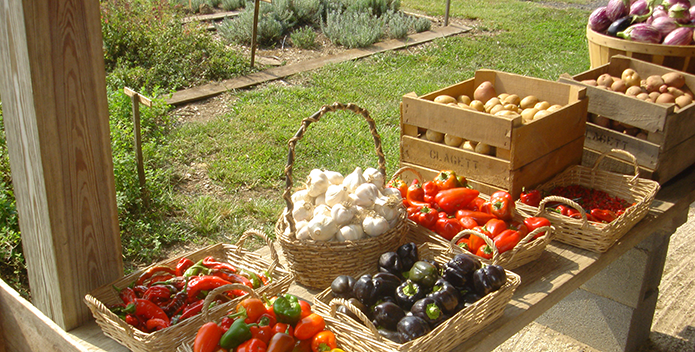Vincent Matanoski is a beginning farmer. He’s looking to learn. A former attorney with the U.S. Department of Justice, Vincent and his wife now raise sheep, goats, vegetables and cut flowers. So, in January of this year when things slowed down a bit on their 80-acre Ladybrook Farm in Baltimore County, Maryland, Vincent did what many other modern farmers do—go to a conference. But this was not just any conference.
On the weekend of January 11-13, 2018, the Future Harvest Chesapeake Alliance for Sustainable Agriculture (CASA) Conference took place at the Marriot Hotel in College Park, Maryland. This was the 19th annual Future Harvest Conference. Farmers, small business owners, consumers, researchers, and food distributers from all around the Chesapeake Bay Watershed and the nation gathered together to share their stories, ideas, and advice. This year’s focus was to “Cultivate the Chesapeake Foodshed”.
The conference offered six different tracks including: Beginning Farming; Crop Production; Grass-fed: Meat and Dairy; Business of Farming; Environment, Community, Health and Policy; and Regenerative Agriculture. Each track consisted of talks given by engaging speakers that were passionate about their field of work. A conference-goer could choose the track that was most relevant to his or her work, or mix and match talks from different tracks to gain a more diverse experience.
Vincent Matanoski has attended the conference with his wife, Carin Celebuski, for about six years. He says there are many helpful talks and tracts that relate to the couple’s specific work. In order to cover the most ground and gain the most information, Vincent and Carin selected the talks they were most interested in, and then split up to attend the different talks.
“Over the years as we have gained more knowledge and experience. We have still always gained something new in coming to the conference each year,” Vincent said.
Vincent and Carin are always looking for ways to further diversify their farm in a sustainable manner. Because of the conference, they have access to the information and experience they need to run a successful and sustainable farm. Vincent described the conference as “one that you will never grow tired of.” “You can’t miss it. We look forward to it every year,” he added.
At the Future Harvest CASA conference each speaker is extremely passionate and dedicated about what they do. They also are eager to help the next generation. The speakers give these talks for the betterment of the farming and food production communities, and even after their talk has ended, they are very generous with their time. They provide their contact information and make themselves available for any follow-up questions others might have.
The Friday opening speaker was a North Dakota rancher named Gabe Brown. Traveling all the way from the Peace Garden State, Gabe spoke devotedly about farming in a way that mimics nature and builds soil health. Gabe operates on 5,000 acres of owned and leased farm land. Rotational grazing, grass-fed livestock, and healthy soil are all components of Gabe’s idea of farming in nature’s image. He seemed to inspire the whole crowd as he finished his talk, and then ran out of the room to catch a flight to another conference where he would continue to educate and enthuse others.
Another valuable part of the conference is the opportunity for networking. With many farmers living in rural America, they can feel isolated from the general public. However, once a year, this conference brings together like-minded people who value sustainable agriculture. It brings them from their farms or businesses, and connects them with a community of people who are just as passionate and hard-working as they are.
The networking aspect allows conference-goers to renew their old relationships as well as form new friendships and possible business connections. For example, Vincent and Carin met Chesapeake Bay Foundation restoration scientist Rob Schnabel at a prior Future Harvest CASA Conference. This connection led Rob to coordinate volunteers to come out and plant 2,000 native trees on Ladybrook Farm to extend a riparian buffer. Many valuable relationships such as this one have been formed over the years at this conference.
Each year the conference continues to broaden, in technical skills taught, in the cultural diversity of the participants, and the range of topics. However, it still remains small enough to be intimate, says Jason Lambros, a Future Harvest board member.
Creating an atmosphere that is educational, diverse, and friendly is not always an easy task. But the Future Harvest CASA Conference has done so again in its 19th annual year.




